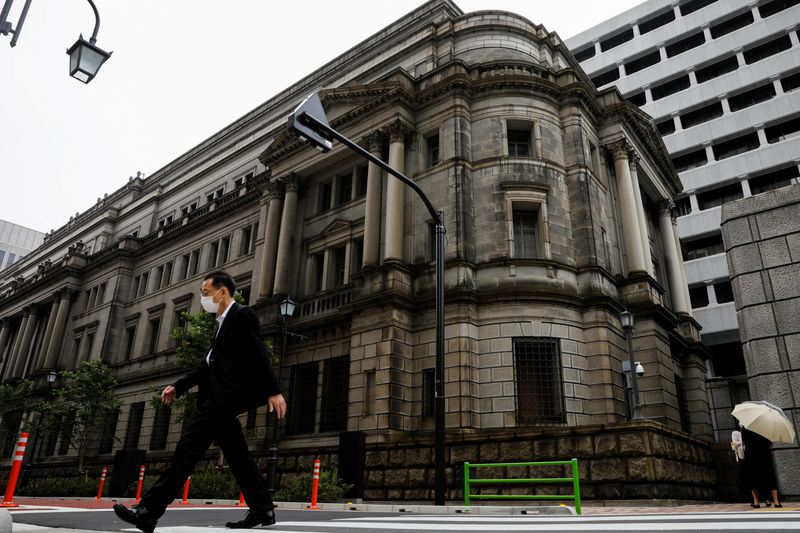TOKYO (Reuters) – The Bank of Japan must be mindful of the potential demerits of its huge asset purchases, board member Toyoaki Nakamura said in a sign the central bank will seek ways to make its asset-buying programme more flexible in a policy review due in March.
Nakamura, a former business executive who joined the board in July, said the BOJ’s purchases of exchange-traded funds (ETF) has helped eradicate Japan’s deflationary mindset by keeping stock markets stable.
But he said the asset-buying programme will be among tools the central bank will scrutinise in a March review, aimed at making its massive stimulus programme more sustainable.
“The BOJ’s ETF purchases … will remain a necessary tool,” Nakamura said in a speech at an online meeting with business leaders on Wednesday.
“But by buying huge amounts of assets and holding onto them for a prolonged period, the BOJ could affect market functions. That is something we need to be mindful of,” he said.
With the coronavirus pandemic likely to prolong its battle to fire up inflation to its 2% target, the BOJ unveiled a plan to conduct in March a review of its policy tools to make them more “sustainable and effective.”
Sources have told Reuters the BOJ will discuss ways to scale back its controversial ETF-buying programme and allow yields to move more widely around its target, partly to deal with the rising cost of prolonged easing.
While the BOJ’s ETF buying has supported stock prices, it has drawn criticism for distorting market pricing. Some analysts also fret over the bank’s accumulating holdings, as ETFs do not have maturity and won’t naturally fall off its balance sheet.
Nakamura told a news conference that buying ETF during the current phase, when stock prices are booming, isn’t “timely,” adding that the BOJ instead should step in when global shocks cause huge market turbulence.
The Nikkei average has rallied more than 7% this year to its highest level since 1990, as investors hope to capitalise on an anticipated global rebound from the COVID-19 crisis this year.
(Reporting by Leika Kihara; Additional reporting by Takahiko Wada; Editing by Chang-Ran Kim, Sam Holmes & Simon Cameron-Moore)
























